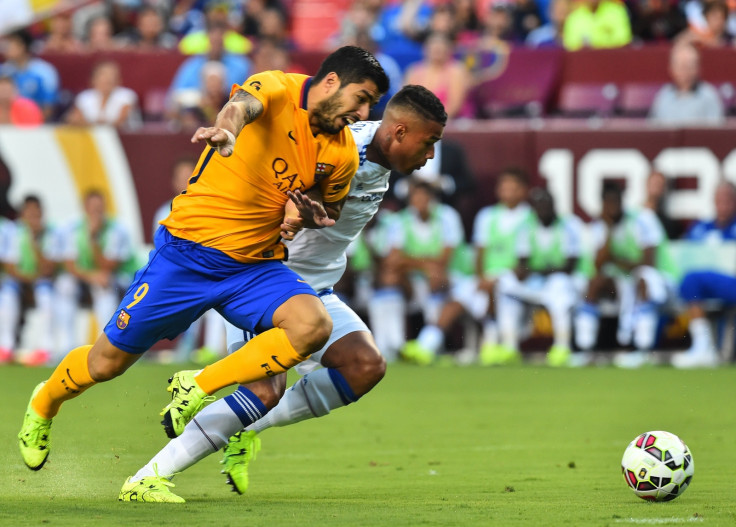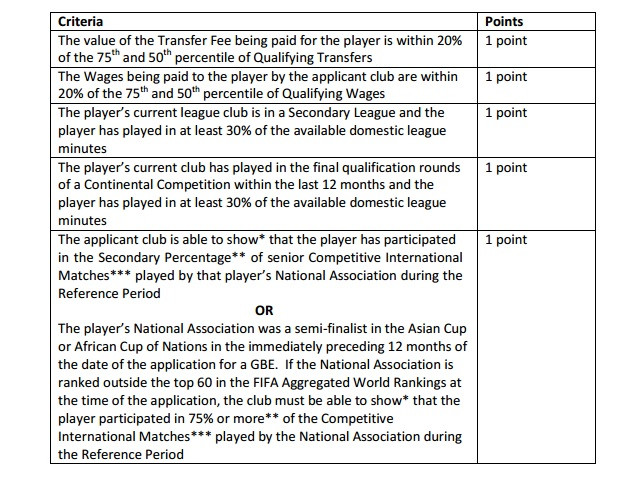How will Brazilian starlet Kenedy earn a work permit to join Chelsea under new FA regulation?

Chelsea's transfer policy routinely sees young hopefuls leave Stamford Bridge on loan just as quickly as they arrived. It's become the norm for a club who have already allowed 15 players to leave on temporary deals this summer with more to follow.
But for Robert Kenedy Nunes do Nascimento, or Kenedy as he is more commonly known, the Premier League champions have something else in mind. Chelsea see a bright future for the Brazilian attacking midfielder, so much so that Jose Mourinho is eager to bring the 19-year-old straight into his first team plans this season.
"We bought Kenedy because we believe in him. He is a young kid that we believe a lot in, hopefully," Mourinho told reporters after the youngster featured for the Blues' first team in a friendly against Barcelona as part of the club's preseason tour of the US. "We don't want him to go out on loan. I think we have what the rules demand to get him a permit."
Thanks to Football Association chariman Greg Dyke's latest efforts to ensure more home-grown players are given a fair crack of the whip at the top level in English football, the process of securing a work permit for a new player has been tightened.
The standard process run by the FA on behalf of the Home Office immediately rules Kenedy out from securing a permit. In order to secure a permit on an initial application, a non-EEA (European Economic Area) player must have played a certain percentage of matches for their country. That percentage depends in where the country in question lies in Fifa's world rankings. That is irrelevant in this case, however. Kenedy has not yet appeared on the radar of Brazil manager Dunga, having only represented Brazil at Under-17 and Under-20 level.
But there is plenty more for Chelsea to consider. Dyke's changes have heavily focused on an overhaul of the appeal process that allows the club a second shot at getting a permit. The previous system was too lax, according to the FA chairman who described it as "a bit of a farce" and the statistics would seem to prove he has a point. As of March 2015, the appeal process produced a 79% success rate in player's being cleared to play in England.

The old appeal process was simply to determine "whether the player is of the highest calibre" and "to consider whether the player is able to contribute significantly to the development of the game at the top level in the UK". That was determined by what Dyke recently described as "subjective supporting evidence".
The Independent reported in March that one of the last players to benefit from this system was Leicester City's Andrej Kramaric, who was granted his permit following evidence from Croatia national team coach Niko Kovac. At the time, Kramaric had made just four appearances for his country, not enough for him to qualify. Kovac however confirmed the player was part of his future plans and a worthy addition to the Premier League. That was good enough.
The old system was criticised by Dyke because "the manager shows up at an appeal with video saying: 'He will be a good player.'"
The new system was introduced in May this year and uses a new point-based system to determine whether a player receives a Governing Body Endorsement (GBA). A GBA will in turn earn them a work permit. The process is overseen by an Exceptions Panel, made up by three members appointed by the FA; an independently appointed and legally qualified chairperson and two additional independents with "relevant experience at the top level of the game". They will then consider the player's experience and circumstances against the criteria below to determine whether a permit is granted. Four points is enough to get it.

According to the FA, the definition of a Qualifying Transfer is: "All transfers to the Premier League in the previous two transfer windows in respect of players submitted on Premier League squad lists. The Qualifying Transfers value will be provided by the FA directly to the Premier League and the Football League prior to each transfer."
While the FA does not release the figures it will use in their criteria, the £6.7m Chelsea will pay Fluminense – a figure reported by the Daily Mail – could fulfil that requirement. The criteria related to qualifying wages could be more difficult to meet, however.
Qualifying Wages relates to "the basic wages paid to the top 30 earners in each Premier League club at the closure of each window prior to the date of the application. The value of Qualifying Wages will be provided by the FA directly to the Premier League and the Football League."
Again, such figures relating to wages are not disclosed but in simple terms, Kenedy must be one of the club's top 15 earners if he is to claim the two points that field offers.
In this primary process, the Exceptions Panel recognises Brazil's Serie A as a Top League outlined in its criteria but while Kenedy featured frequently for Fluminense in his final season at the club, was it enough to secure another qualification point?
The FA criteria demands a player plays in at least 30% if available domestic league minutes to win a point. According to data collected from WhoScored, Kenedy made one appearance in Fluminense's 2015 Serie A campaign, albeit in a season that began as recently as May this year. In the 2014 season he made 20 appearances, having made nine in his debut campaign in 2013.
Looking at Kenedy's 2014 season, he accumulated 507 minutes of playing time. That 30% requirement equates to 1026 minutes of football during the Serie A's 38-game campaign. While Kenedy clearly contributed to Fluminense's season, he would appear to fall short of the required figure. Kenedy featured in roughly 15% of Fluminense's matches last season; surely the FA would take that into account?
The final criteria from the primary stages call for the player's club to have played in at least the group stages of a Continental Competition in the last 12 months. When it comes to Continental Competition, the FA recognises the Uefa Champions League, the Uefa Europa League and the Copa Libertadores as acceptable tournaments.
Fluminese have been absent from South America's equivalent of the Champions League, and while Kenedy did play for the club in the Copa Sudamericana – its answer to the Europa League – that may not be enough to earn a point.
The secondary review stage could come to Chelsea's rescue, however. Should a player not get the required four points from the primary stage, a second criteria allows a candidate to make up that tally. In the event of this, the threshold required rises from four points to five.

The secondary review is essentially a repeat of the primary, but with the rules relaxed. To get points here, Kenedy's fee must be within 20% of the 50<sup>th percentile of the average Premier League transfer fee over the past two years. Similarly, his wages can be within a 20% reach of Chelsea's 15<sup>th best paid player.
Even if an applicant fails to get the required points from the primary and secondary reviews, there is a third review stage that takes into account "subjective criteria".
All in all, you can bet Chelsea have been through this process themselves and are perfectly aware of what requirements they must fulfil. Given Jose Mourinho's confident words over the process, you feel the club's chances of Kenedy receiving clearance to play in the Premier League are high.
"We have conditions to get him a work permit because we want him," Mourinho said. "We don't want him to go out on loan. I think we have what the rules demand to get him a permit."
In the end, it may be Mourinho's glowing review of the player and his more than stellar performance against Barcelona that bolster his application more than anything.
© Copyright IBTimes 2025. All rights reserved.





















